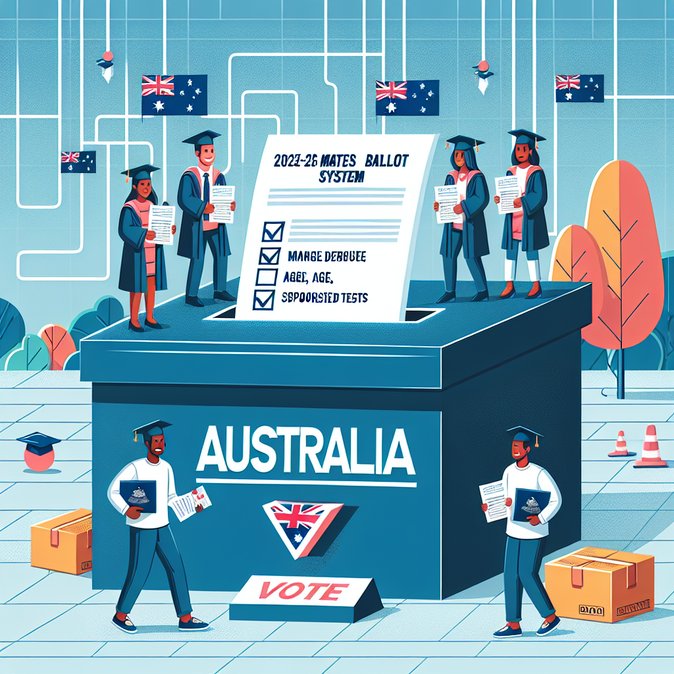
Registrations have opened for the 2025-26 round of Australia’s Mobility Arrangement for Talented Early-professionals Scheme (MATES), offering 3,000 two-year work visas to Indian degree-holders aged 18-30. The online ballot began on 1 November and runs until 14 December; selected candidates then have 30 days to lodge a subclass 403 application.
Unlike employer-sponsored visas, MATES allows participants to work for any organisation in sectors such as renewable energy, ICT, AI, mining, AgriTech and FinTech. No job offer is needed at the time of application, though proof of funds and health insurance are mandatory. Successful applicants may bring immediate family and travel in and out of Australia freely during the two-year stay.
![MATES 2025-26 ballot opens: 3,000 work-visa slots for Indian graduates in Australia]()
The programme is a deliverable under the 2023 Migration & Mobility Partnership Agreement between the two countries and complements extended post-study work rights. For Indian companies with Australian subsidiaries, MATES offers a low-cost way to place junior staff on client projects without securing sponsorship; however, numbers are capped and demand is expected to exceed supply ten-to-one.
Corporate mobility managers should brief eligible employees to enter the ballot early, verify passport validity for the entire stay and gather evidence of recent degrees from top-100 NIRF institutions. Because the visa cannot be extended or converted onshore, long-term workforce planners must map out next-step options—TSS, 186 or global talent visas—well before the two-year mark.
If the ballot mirrors last year’s pilot, results will be emailed in weekly tranches, and unfilled places will roll to a second draw in January 2026.
Unlike employer-sponsored visas, MATES allows participants to work for any organisation in sectors such as renewable energy, ICT, AI, mining, AgriTech and FinTech. No job offer is needed at the time of application, though proof of funds and health insurance are mandatory. Successful applicants may bring immediate family and travel in and out of Australia freely during the two-year stay.

The programme is a deliverable under the 2023 Migration & Mobility Partnership Agreement between the two countries and complements extended post-study work rights. For Indian companies with Australian subsidiaries, MATES offers a low-cost way to place junior staff on client projects without securing sponsorship; however, numbers are capped and demand is expected to exceed supply ten-to-one.
Corporate mobility managers should brief eligible employees to enter the ballot early, verify passport validity for the entire stay and gather evidence of recent degrees from top-100 NIRF institutions. Because the visa cannot be extended or converted onshore, long-term workforce planners must map out next-step options—TSS, 186 or global talent visas—well before the two-year mark.
If the ballot mirrors last year’s pilot, results will be emailed in weekly tranches, and unfilled places will roll to a second draw in January 2026.






